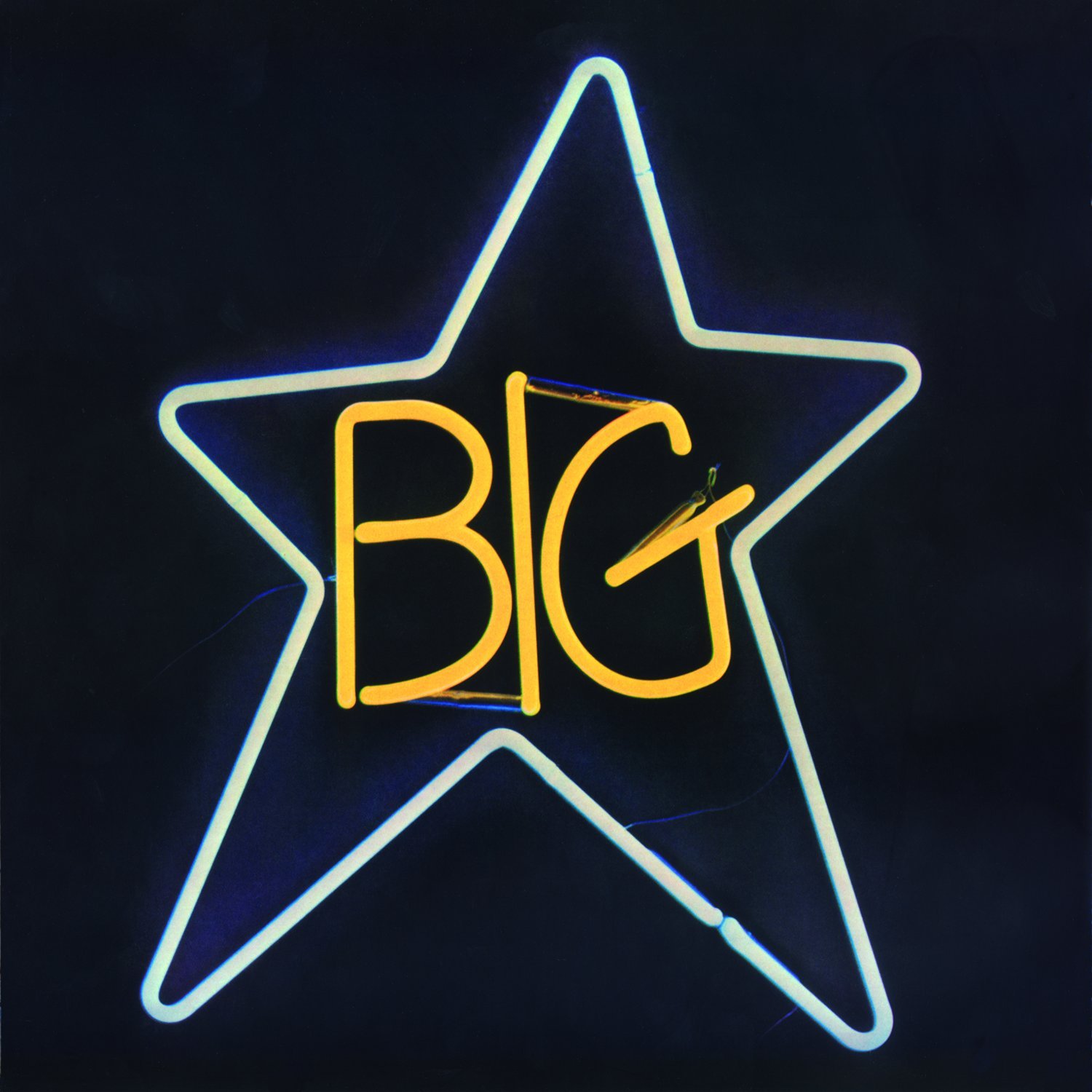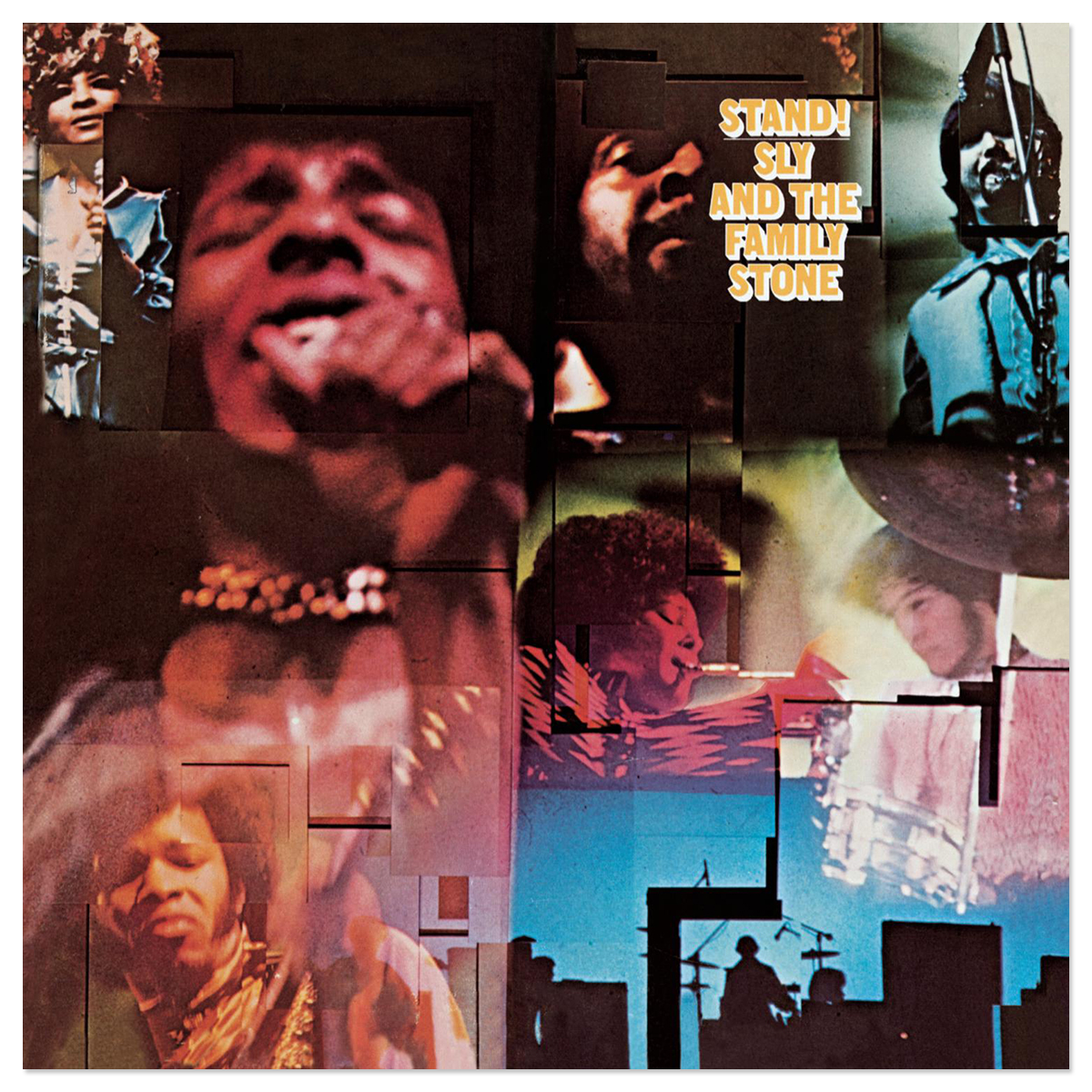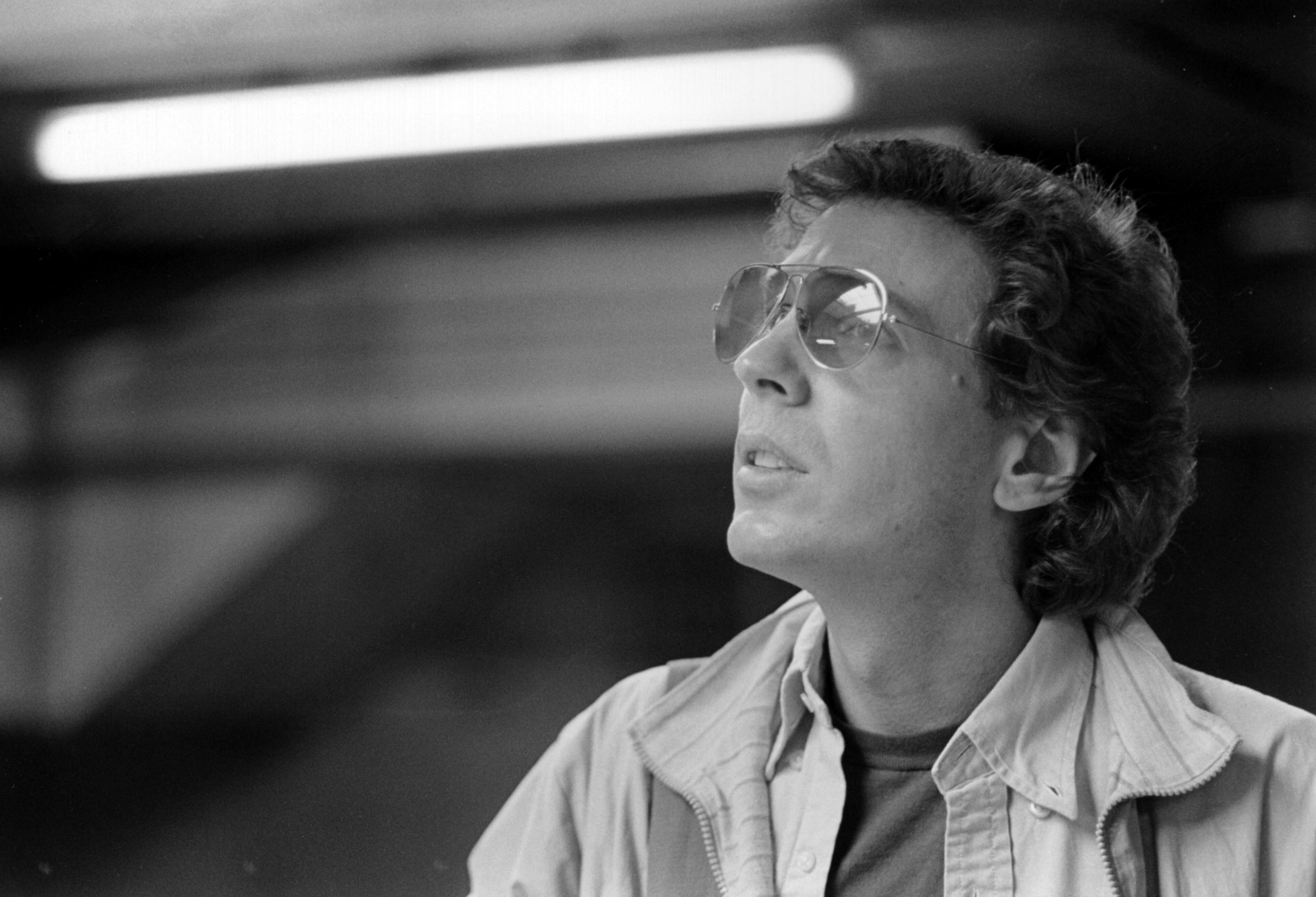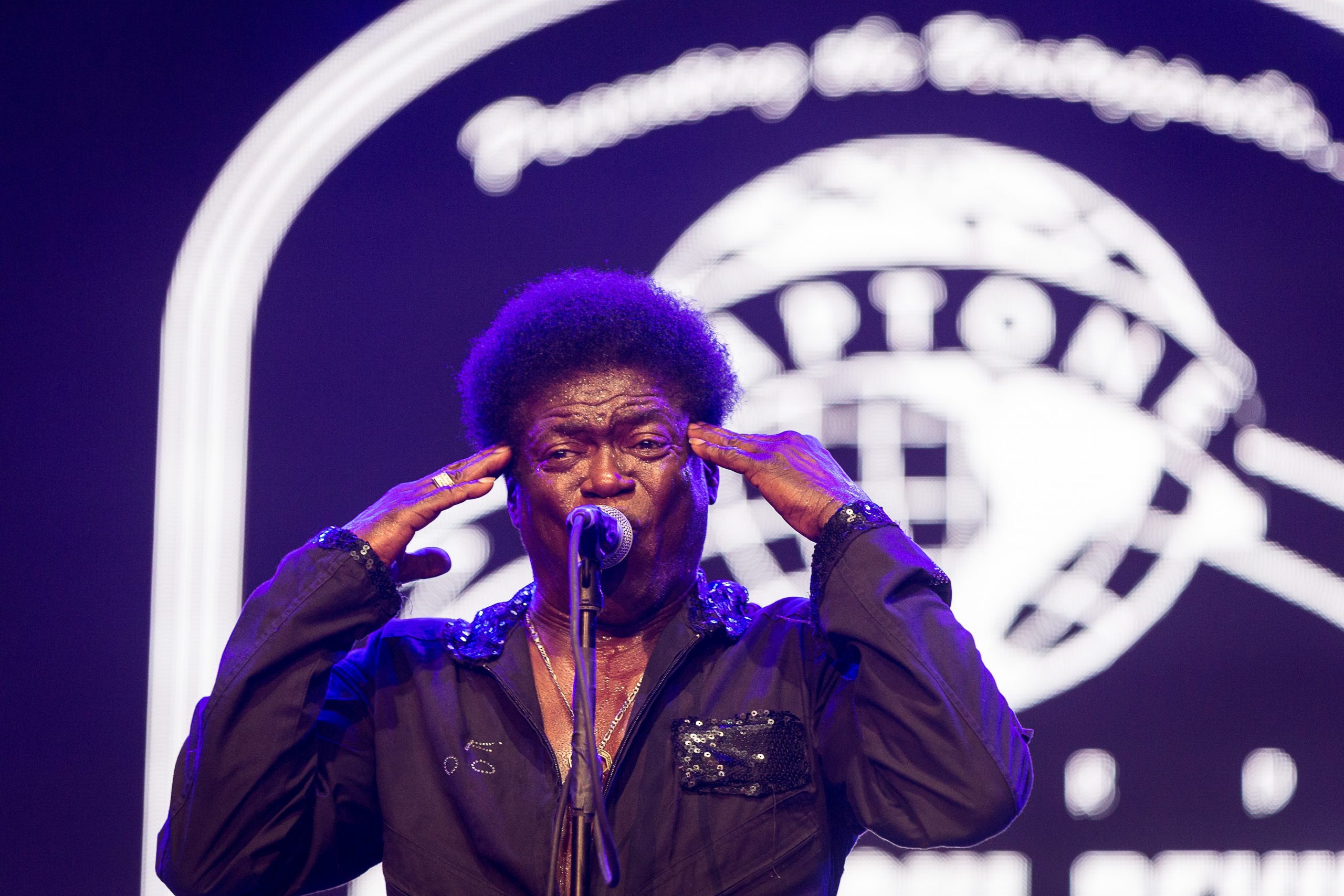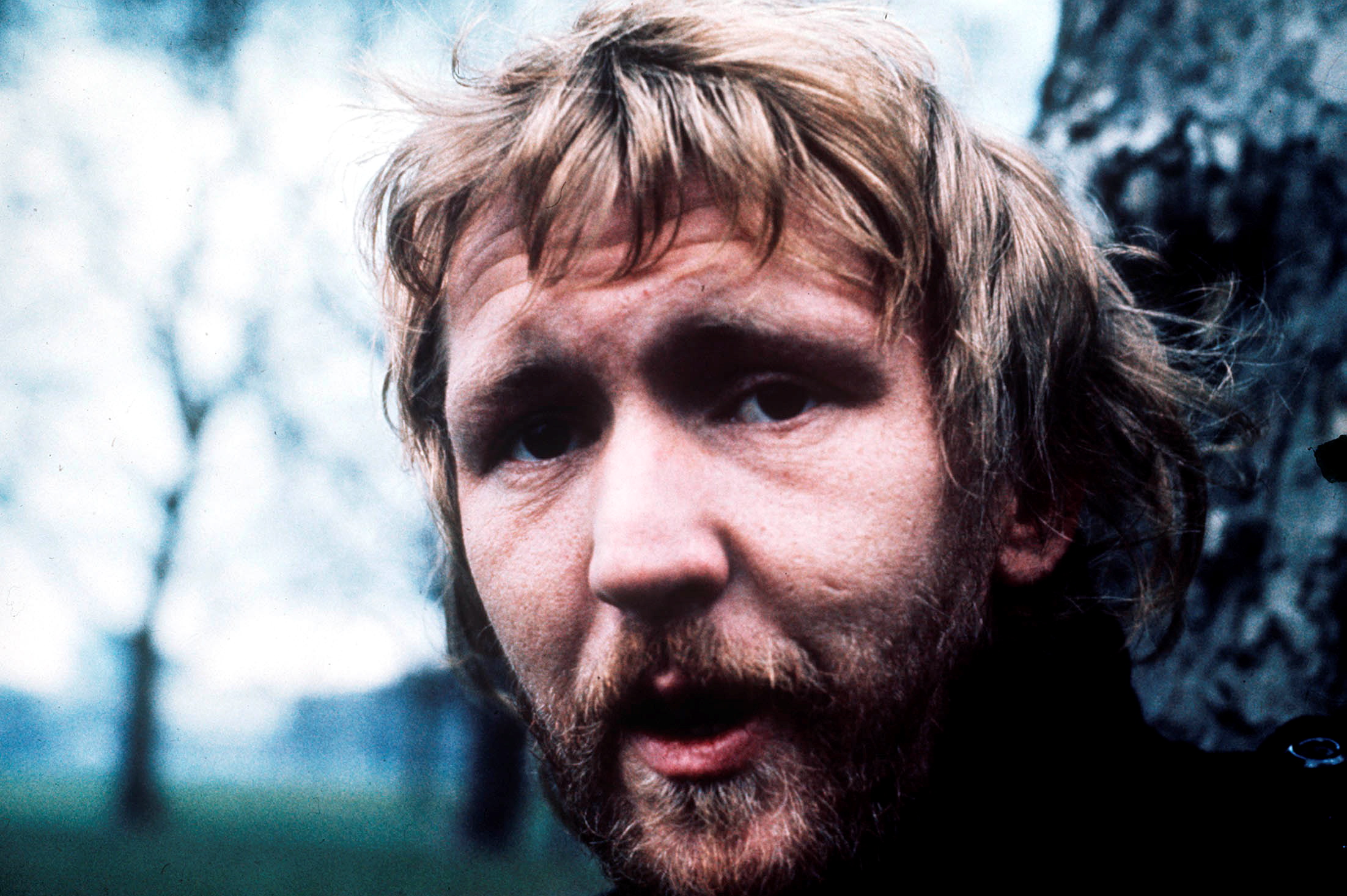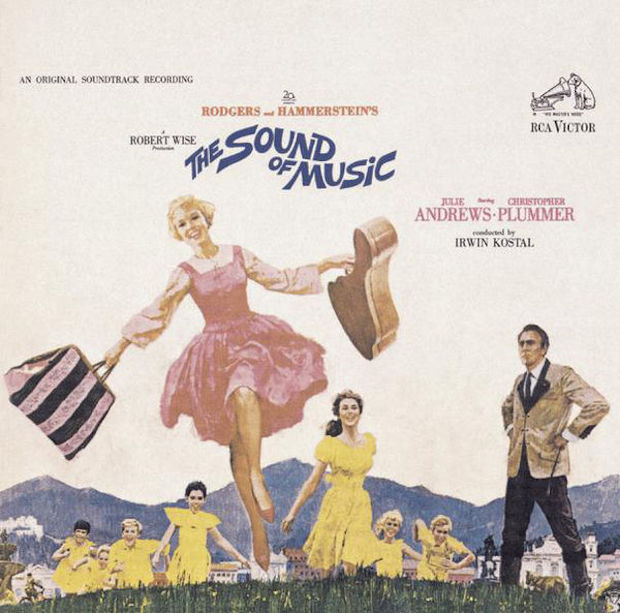Rock 'n' roll is supposed to be about feeling young and agitated, at least if you go by the mythos that the genre likes to tell about itself. Of course, that feeling can be a nightmare to revisit once you're past it -- the sole verse from LCD Soundsystem's "Sound Of Silver" put it pretty clearly ("Makes you want to feel like a teenager/ until you remember the feelings of/ a real-life emotional teenager/ then you think again"). Once you untangle the idea of youth as it's been codified through pop culture and the social panopticon -- whether it's some corporate Mountain Dew bullshit or the deeply felt yet not completely experienced filterless outbursts that DIY expression allows -- things get a lot more complicated than even the universally memorable collision of hormones and self-awareness usually make them.
For instance: when he was in his early 20s, Alex Chilton co-wrote a song about being 13 -- several years removed from being as mainstream pop-famous as he'd ever get at 16, when he sang lead for the Box Tops. "Thirteen" is a deceptively simple song about being young and in love, not just with a schoolmate but with rock 'n' roll -- there's a line about justifying that budding relationship to that romantic partner's dad by invoking the Rolling Stones' "Paint It Black," which is a remarkably bleak song to explain that love to your significant other's old man. The catch is that "Paint It Black" was released in 1966, and it wasn't out yet when Alex Chilton or co-writer Chris Bell were 13. But it's not necessarily their own youth, is it?
In fact, it must have felt like a lot of people's youths. It's just that those feelings didn't start getting filtered through other people's voices until the early '90s, at which point the plaintive, lovestruck defiance that Chilton brought to the original had already worked deep into the souls of whatever scattered handful had heard it. (Weirdly enough, the first chronological version I could find mention of is a 1990 version by Happy Flowers, who are probably best known as one of the most confrontationally deranged noise-punk bands of their time -- though internet audio is hard to come by, so you'll have to take my word that their version of "Thirteen" from Lasterday I Was Been Bad is kind of like a first-take super-drunk no-drums '83 Replacements rehearsal sort of thing.) In a lot of ways, it's not the kind of song that needs excessive tinkering with, though that does mean there's a relative dearth of covers that actually do something interesting with the arrangement outside a faithful reading of a musically and emotionally open song like this. There are definitely enough, though. So, to coincide with the new Big Star tribute concert recording, Thank You Friends: Big Star’s THIRD Live ... and More, let's talk about some memorable renditions of the most flawless gem from Big Star's debut LP.
Magnapop (1992)
Fronted by Linda Hopper, who'd previously been a member of the underappreciated Oh-OK (along with Michael Stipe's younger sister Linda and a young Matthew Sweet), Magnapop released their self-titled debut in January '92 -- which would seem like a pretty opportune time for a band with a Michael Stipe co-sign and production credit to break at least indie-big. They made a name for themselves on the European festival circuit before the States caught on, but they got at least some recognition for, among other things, their frequent appearances on the then increasingly trendy wave of tribute complilations that were flooding the indie world -- including a sharp "Pleasant Valley Sunday" on Monkees homage Here No Evil and Bob Dylan's "Every Grain Of Sand" for a comp called Outlaw Blues Volume Two. Their "13," from their self-titled debut album, tops them both, and might be the one of the more fascinating covers for how it flawlessly brings out the power pop potential of the original -- all crashing drums and churning, ramped-up electric guitars -- without drowning out the floating-on-air sentiments. When it bursts through the door during that second verse, right at the line "rock 'n' roll is here to stay," it makes its own case for a decades-old song sounding absolutely of the moment.
Elliott Smith (rec. 1996; rel. 2007)
This is why "Thirteen" can be such a tricky subject: Nearly all of the song's wonderment and emotional pull can be found right there in the original Big Star version, and more often than not it's approached as such a fully formed and untouchable subject that it feels like the same song with a different voice -- even if that voice is one of the most recognizable in his field. Listen to Big Star's "Thirteen" once, then picture what Elliott Smith would do with it, and you have just about all you need to go on for this version. A-B the two versions, however, and the nuances become a little clearer. Smith's voice -- which, naturally, is more than up to the task of merging all those mixed-up in-love agitated feelings in the song -- is recorded a bit more intimately so that it sounds like it's surreptitiously whispering in your ear during detention, and something about his guitar playing feels a little more anxious than the way Big Star did it -- the subtly but noticeably sped-up pace they saved for the third verse runs through the entirety of Smith's performance. Recorded sometime between his two early classics -- his spare, acoustic self-titled '95 debut and the more full-band indie pop sound of 1997's Either / Or -- but unreleased until his posthumous Kill Rock Stars compilation New Moon, Smith comes the closest any musician ever has to actually reclaiming one of Big Star's songs as his own.
Wilco (rec. 1997-98; rel. 2006)
The "Americana"-branded gray area of underamplified, somewhat-rootsy rock-adjacent music didn't quite fit Big Star as closely as it stuck to some of their influencees, but it'd be hard to think of a more fitting meeting of subject and performer than "Thirteen" and Wilco. If anybody can embody the original song's antsy wishful thinking and its don't-get-your-hopes-up final lines, it's Jeff Tweedy, who shuffles through a more traditionalist idea of vintage Memphis with some mournful Greg Leisz steel guitars and a plaintive Jessy Greene violin en route to making absolutely sure his voice cracks in just the right way during that final verse ("If it's no, well, I can go/ I won't ma-aake you"). It's a version that sounds like it already knows the answer is "no" before he even asks.
Garbage (1998)
When Rolling Stone asked Alex Chilton what his favorite Big Star cover was, he singled out this one -- ostensibly because he felt there weren't too many other good ones (though "it can be flattering when someone does it right"). Garbage's version appeared on the Japanese edition of Version 2.0 and some international versions of the "Push It" single, and it might be the strangest cover on this list. It isn't merely the gender-swapped lead singer perspective -- "Thirteen" doesn't necessarily have to be sung from a young man's perspective, no matter what pronouns get used -- but how significantly it completely inverts the dynamic and the mood, from anxious to confidently seductive. Shirley Manson's vocal turns the title from a signifier of youthful age to a bad-luck number, anxiety into confidence, a naive request into a knowing proposition. Give the thing a glossy demi-trip-hop backbeat and a lead guitar that sounds more like it came from the Velvet Underground's third album than Big Star's first, and you can see why Chilton must have loved it -- because it sounded wholly detached from his own.
Albert Hammond Jr. (2011)
We don't plan on making Gotcha Covered a regular destination for pointing out the fuck-ups of others, but there is something to be said for using an unfortunate cover to point out what makes an original work. Musically, "Thirteen" might almost click as a kind of glib new wave-adjacent chunk of quick-n-hooky alt-rock, and it's a solid choice to make Big Star's "Thirteen" sound like it could've come from Blur's 13 (play this back to back with "Coffee & TV" for further reference). But it's not easy enough to pull off that someone as vocally limited as Albert Hammond Jr. could do it justice. He does sound enough like the awkward kid that Chilton only hinted at, but not the hopeless-romantic kind of awkward -- more like the nasal dork who's just learning how to be cool but hasn't quite made it across the rubicon just yet. Listen to the flat, squawky way he scowls that "Won't you tell your dad, get off my back/ Tell him what we said 'bout 'Paint It Black'" line, or the wobbly almost-got-the-hang-of-this-puberty-thing delivery of "Won't you be an outlaw for my love," and it's enough to remind some of us that being 13 was more a series of humiliating self-owns than a roguish introduction to young love.
The Lightnin 3 (2012)
If you've ever wondered if it's still possible for an at least moderately mid-profile band to come up in this decade, only to nearly disappear off the face of the internet after less than five years, The Lightnin 3 might be as close as you can get to proving it's a possibility. They're still on streaming sites and iTunes, sure, but their Allmusic page is limited to saying "well sure I guess they exist, theoretically" and Rate Your Music, exhaustive as its user-built catalog is, comes up empty for the band and the label alike. It's weird, sure, but particularly because their sole album, Morning, Noon & Night, has at least a few angles that could've made it more than just a filed-away catalog number. The Lightnin 3 brought together three below-the-radar singers -- Brisa Roché, Ndidi Onukwulu, and Rosemary Standley -- and put them together with a band that included god-tier garage-rock cult hero King Khan and Swans/Stooges/Nick Cave collaborator Toby Dammit, the latter of whom produced and arranged the album. And Morning, Noon & Night hit a crowd-pleasing sweet spot of throwback soul in the service of recognizable but left-field covers -- Ruby Andrews's deep R&B cut "Casanova (Your Playing Days Are Over)," Magazine's white-knuckled post-punk catharsis anthem "The Light Pours Out of Me," The Runaways' gleefully snotty teenage threat "Cherry Bomb" -- to the extent that it's weird at least one of them didn't have some curiosity thrown its way. Their smooth-swinging, horn-laced "Thirteen" lands somewhere between It's Too Late To Stop Now-mode Van Morrison and Rickie Lee Jones's "Chuck E.'s In Love," keeping it in the '70s -- but a more velvety, showbizzy-meets-bohemian corner of the time that fits it just as well.
Girlpool (2017)
Girlpool know how to fill up negative space. The two-member, two-vocal, two-chord, no-drums band have this eerie ability to take something that should sound small and make it fill every corner of the room, and if that means their vulnerability or their amateurishness sometimes comes to the fore, that's by design: Cleo Tucker and Harmony Tividad regularly invoke the simultaneous awe and nervousness of being a kid and not knowing how the world's supposed to work -- or of being in your teens and realizing that same feeling's not going away anytime soon, so you might as well translate that into a means of anti-nihilist power. So of course "Thirteen" fits them perfectly, an adolescent search for someone to love sung in tandem and delivered with all the haunting isolation of something more in line with Big Star's Third.
